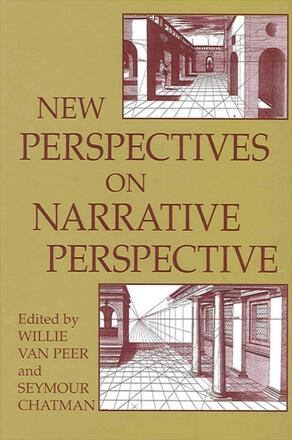
New Perspectives on Narrative Perspective
Alternative formats available from:
Offers an interdisciplinary approach to narrative perspective, with essays by leading scholars of literary studies, cognitive psychology, linguistics, philosophy, and film and media criticism.
Description
Narrative perspective is the faculty through which humans understand, structure, and explore the world that confronts them. This is the first volume to bring together the theoretical study of perspective with the rigor of experimental studies, combining work in narratology with that in linguistics, philosophy, film studies, literary theory, and cognitive psychology. The chapters are grouped thematically and drawn together by the editors, who provide guidance through this new and fascinating interdisciplinary territory.
Willie van Peer is Professor of Literary Studies at the University of Munich. He is the author of several books on poetics and the epistemological foundations of literary studies, including The Taming of the Text: Explorations in Language, Literature, and Culture. Seymour Chatman is Professor Emeritus of Rhetoric and Film Studies at the University of California, Berkeley. He is the author of several books on literary and cinematic narratology, including Coming to Terms: The Rhetoric of Narrative in Fiction and Film.
Reviews
"By far the best thing about this book is the mix of authors. We find first-rate literary theorists, psychologists, film critics, and linguists all writing about more or less the same thing but, of course, from very different perspectives. A nice mix of humanistic and empirical scholarship. " — Colin Martindale, University of Maine
"This book is very timely, in light of current developments in American stylistics. American scholars, except for researchers like Chatman, Gerald Prince, and Ann Banfield, have tended to shy away from global treatments of narrative, whereas this subject has been a focus of a great deal of research in Europe for the last twenty years. In addition, partly as a response to the excesses of so-called literary theory, interest has mounted in a more empirical approach to literary analysis. This volume speaks to both of these developments. It will constitute an important statement within an emergent sub-discipline of stylistics, and should help alter the terms of current debate over literary theory. " — Donald C. Freeman, University of Southern California